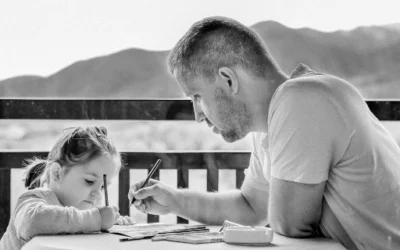Psychological Assessment & Learning Assessment Services in Nova Scotia
Gain Clarity, Insights, and Strategies so Your Child or Teen Achieves Their Full Potential.
Our team of learning and assessment experts works with children as young as age 3 through college-age students.
We’ll help you and your child get the answers, support, and help they need to thrive.

Your child, teenager, or college student doesn’t need to struggle.
Psychological assessment and learning assessment help identify your child’s strengths and challenges with cognitive, learning, behavioral, and emotional functioning.
The assessment process is a tool that can help us gain diagnostic clarity and individual insights that let us develop personalized recommendations to help your child succeed.
So you, teachers, and other professionals can provide interventions, accommodations, and strategies that will help your child reach
their potential.

Our experts can help you and your child get the answers and support you need through our psychological assessment.
Our trained psychologists are experts in assessment and learning.
We create a safe, nonjudgmental environment so your child feels comfortable, relaxed, motivated, and engaged during the evaluation.
We check in with you and your child throughout the assessment process to see how everyone is feeling.
Because we focus on fully understanding your child, including strengths, many children report feeling empowered or realizing they can be a learner.

We’re experienced with communicating results from the psychological asssessment to local schools and other professionals.
Most families will want to share the assessment results and recommendations with other professionals, such as the school, pediatrician, or daycare center.
We understand what the local school systems and other professionals need, so that they can best help and support your child.
We can help you navigate these systems, including answering questions you may have and how to effectively share the information.
Comprehensive psychological assessments we offer include:
1. Developmental assessments for preschool-aged children (ages 3-5 years), including:
Cognitive
Adaptive
Behavioural functioning
School readiness
3. ADHD assessment for children, young adults, and college students
2. Psychoeducational assessment services for school-aged children, young adults, and college students, including:
Learning disabilities
Developmental disabilities
Intellectual disability
Giftedness
4. Functional behavior assessments for children ages 3-12
What to expect from our psychological assessment in nova scotia.
Assessments vary based on the referring question or child’s specific needs. Our experts will discuss your child’s specific assessment plan with you.
Articles related to psychological assessments
Learn more about psychological assessments and learning assessments with resources on our blog.
Autism Assessments 101: A Parent’s Guide to Understanding the Basics
Discovering a Path of Support for Your Child When it comes to your child’s development, finding answers can feel overwhelming. Autism assessments provide not just clarity but also a pathway toward understanding and supporting your child. This guide offers...
What are the benefits of a learning, ADHD, or behaviour evaluation for my child?
As a parent, you do everything you can to support your child, including their learning. Yet, when a teacher or the school suggests your child get “evaluated,” it can lead to uncertainties and questions. Many parents are left wondering: How will this really help? Will...
How Learning Disorder Assessment and Diagnosis Can Help Your Child
Children can struggle in school for various reasons. Sometimes, it may be due to adjustment issues, emotional challenges, difficult life circumstances, or underlying problems with learning. Getting to the root of the issue is essential to help them overcome the...
PSYCHOLOGICAL ASSESSMENT FREQUENTLY ASKED QUESTIONS
Do I need a professional referral for testing?
Your child’s pediatrician, school, or mental health provider may refer your child, but a professional referral isn’t necessary. That said, check with your insurance provider to see if they require a referral.
How much does a psychological assessment in Nova Scotia cost?
Assessments vary by purpose and service providers. However, typically a psychoeducational assessment for a school-aged child is $3150. Please call for more information about fees for various assessment services.
How do I explain the psychological assessment to my child?
- Listen to their concerns
- Avoid using the word “test,” instead consider using “activities”
- Let them know that the purpose is to help them better understand their learning style or what they’re experiencing
- Normalize the experience by reassuring them that other children participate in assessments too
The psychologist will also explain the assessment, including addressing any concerns.



